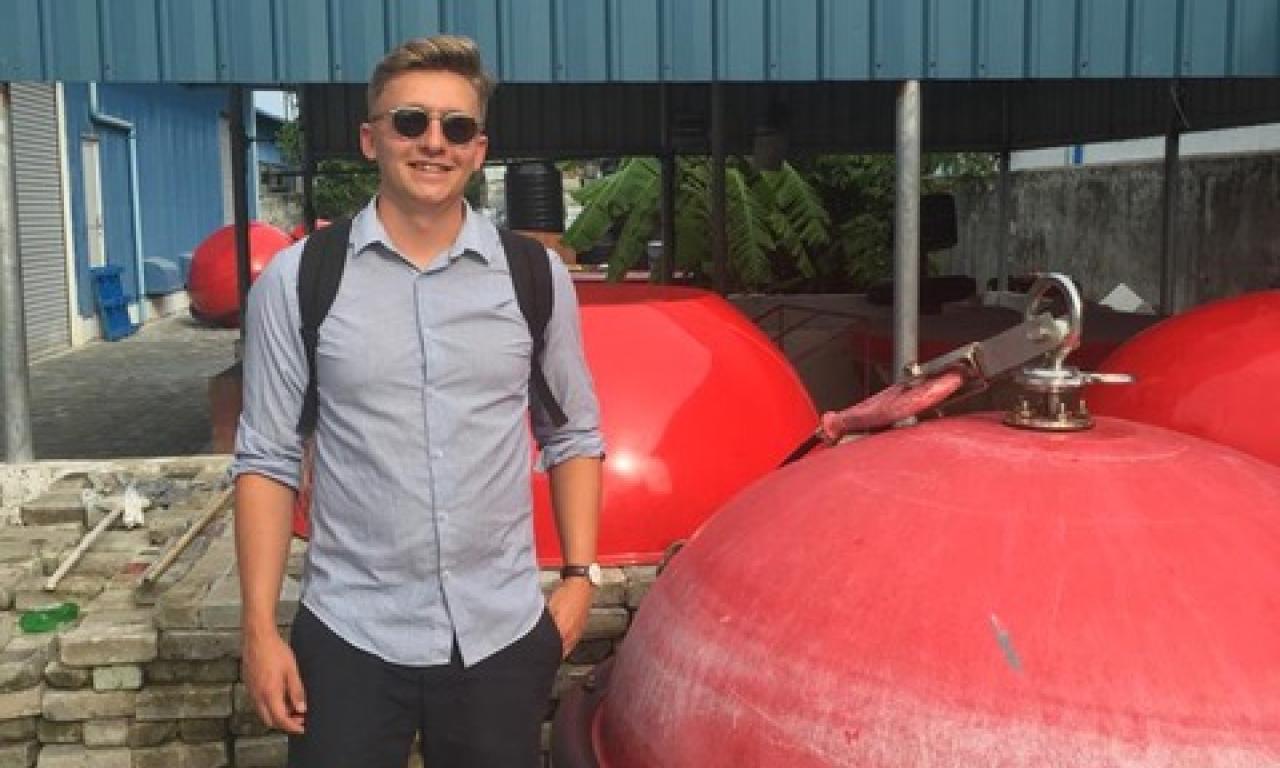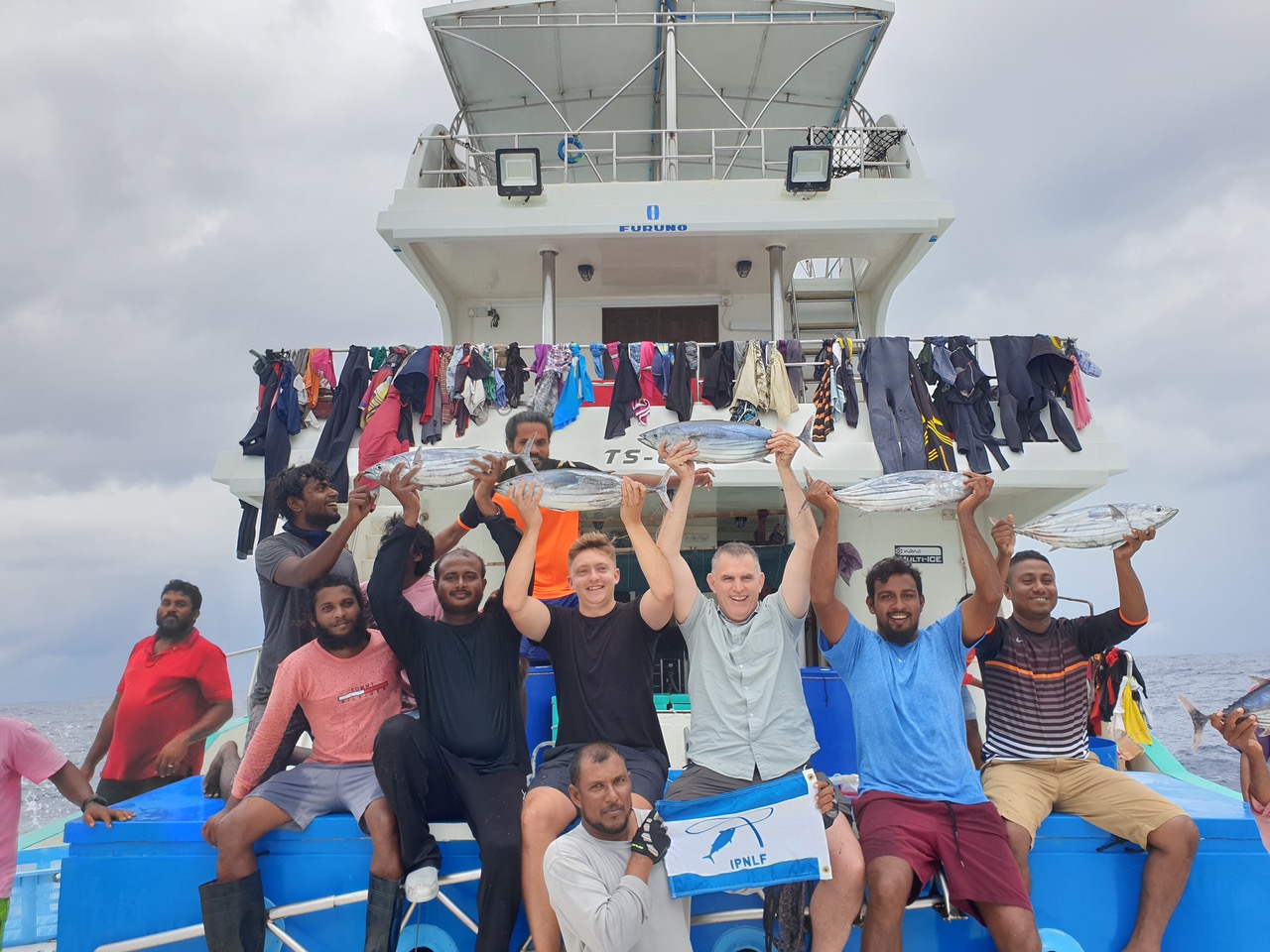
Zacari Edwards, Social Responsibility Director at the International Pole and Line Foundation (IPNLF), was a contributing author to the IHH Maldives case study. At IPNLF, Zac’s work focuses on evidencing the social and economic benefits associated with small-scale tuna fisheries connected to high-value markets.
Illuminating Hidden Harvests (IHH) is a collaborative study led by the UN Food and Agriculture Organization, Duke University and WorldFish, which is intended to reveal the true contributions of small-scale fisheries. In this series, we profile some of the more than 800 experts from over 50 countries who contributed to the 58 country case studies and thematic studies included in the IHH research due out in 2022.
Hi Zac, do you think you could tell us a bit more about your career and your work with small-scale fisheries?
My career so far has had almost an exclusive focus on small-scale fisheries connected to high value markets. What first began as a keen interest in small-scale fisheries governance has evolved into a role at IPNLF that is focused on: coordinating socio-economic research efforts, developing socially focused fisheries development projects, and supporting efforts to promote the socially responsible characteristics of the fisheries we work with.
Before becoming the Social Responsibility Director at IPNLF, I was working as IPNLF’s Socio-Economic Manager where I was fortunate enough to have had the opportunity to partake in and lead a number of initiatives to better understand the social impacts of fisheries. For example, I helped coordinate a project under the Blue Communities Initiative to develop socio-economic indicators for small-scale fisheries that can help inform fisheries management decisions. This work has meant that we were able to provide a snapshot of the key areas that small-scale fisheries contribute to communities. In addition, I worked on developing a digital platform called the Sourcing Transparency Platform (STP), to create greater transparency in small-scale tuna supply chains.
Tell us about the role and contributions of small-scale fisheries in the Maldives that the IHH case study will help to highlight?
One key takeaway in terms of the role of small-scale fisheries in the Maldives was the extent that small-scale fisheries contribute to both local employment and food security. Some of these fisheries were connected to international markets, such as the grouper fishery, whereas others contributed greatly to local food security and wellbeing. What was particularly interesting was how efficient the small-scale fisheries were. In Europe and the US there are a large number of species that consumers will not buy or eat. There is far less waste in the Maldives with a diverse array of fish consumed and all parts of the fish being utlised. Any tuna that is not classed as a premium quality is sold in domestic markets and used locally to support food security. There is also a lot of local income generation centred around locally available and traditionally processed products such as the dry-cured tuna product “Maldive Fish'' and the fish paste product “Rihaakuru”.

Why do you believe the IHH study is important?
Small-scale fisheries are burdened by a common misconception that, due to large data gaps, they are unsustainable and involved in illegal, unregulated and unreported (IUU) fishing. However, this framing of IUU unfairly groups three distinct fisheries management challenges together at the expense of small-scale fisheries development. Many small-scale fisheries often have good formal and/or informal management systems in place, and the IHH study will directly address these data-gap driven misconceptions.
What is new in the approach that IHH is taking to understand small-scale fisheries in the Maldives?
The Maldives, as a country, is very focused on robust fisheries management supporting their fisheries connected to export markets. The IHH study provides a unique insight as it fills the data gaps of small-scale fisheries through different thematic lenses, providing a more holistic picture. For example, the food security benefits of Maldivian fisheries provides a compelling argument for why Maldivian small-scale fisheries could be regarded as a best practice model for small-scale fisheries in general, as they sustain local seafood demand simultaneously with being highly competitive in international seafood markets.
What were the biggest challenges for your country team in completing the IHH Maldives case study?
The biggest challenge was ensuring that we were addressing data gaps in the best, most efficient way possible whilst being clear about our assumptions. This involved looking at a lot of sub-sample surveys from NGOs, governments and finding ways to extrapolate this data to the national level. For instance, we had access to a lot of public facing data for the tuna fishery at a national level, but there was little data for the inshore reef fishery. We had to find creative ways to fully capture the size of the reef fishery and the benefits associated with it with the limited data we had to create a full picture of all small-scale fisheries in the country.
How can the findings be used?
We have helped display the role small-scale fisheries can play in supplying seafood to other countries whilst also ensuring their citizens directly benefit from ocean resources i.e. through associated food security, livelihoods and employment. More broadly, we have also been able to show how small-scale fisheries create a market for other local industries, such as what’s known as the cottage industry where local women use traditional methods to dry-cured tuna that hasn’t been sold or consumed.
What have you learned while undertaking this study?
I personally obtained a much more holistic view of Malidvian fisheries through analysing the IHH data and gained a more in depth insight into the direct and indirect interactions with fisheries connected to export markets. Furthermore, I was able to expand my knowledge from being tuna focused to understanding challenges associated with all kinds of other types of fisheries in the Maldives. Finally, IHH reaffirmed my appreciation for how important the fisheries are for the Maldives, not only in terms of their economy, but as a key part of their culture.
If you’ve enjoyed this interview with Zacari Edwards, find the other Illuminating Hidden Harvest profiles here or follow @IPNLF on Instagram,Twitter, and Facebook, and check out their website.
